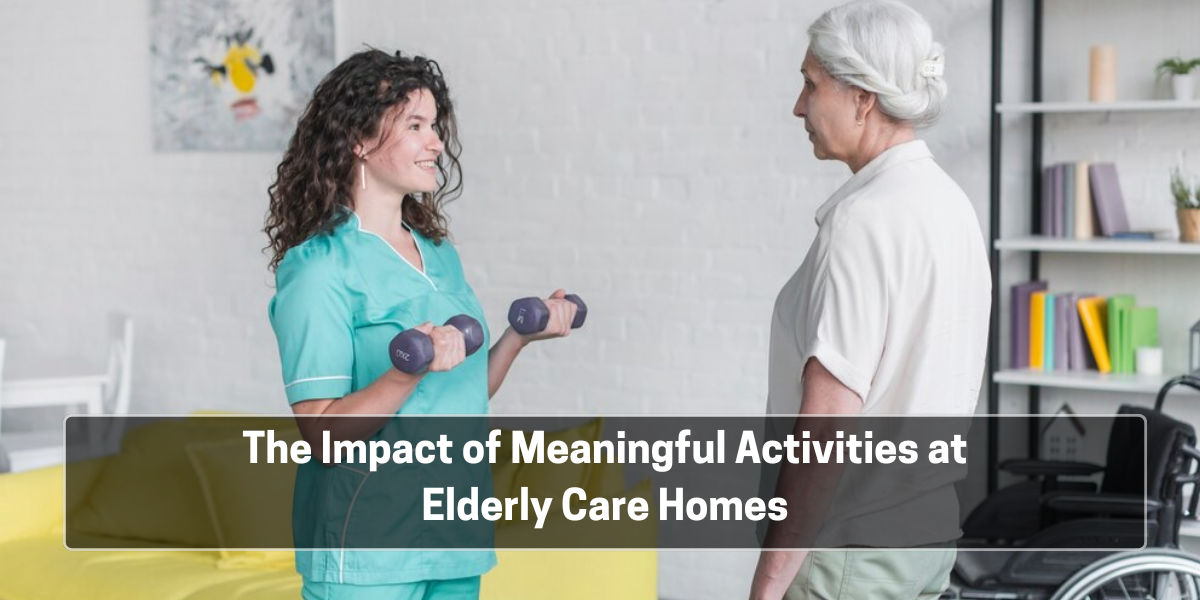As individuals age and move into elderly care homes, they often face a challenging transition that can be accompanied by a sense of loss. Losing one’s sense of autonomy, home, and purpose can be difficult to cope with. It can negatively impact one’s overall quality of life. To help seniors cope with these negative emotions, it is essential for caregivers to host meaningful activities in elderly care homes.
Meaningful activities are much more than mere entertainment; they are designed to stimulate cognitive function, maintain physical health, and foster emotional connections among residents. Through these activities, residents get the opportunity to cultivate new skills, revisit old hobbies, and retain a sense of identity and belonging in their new environment.
Here, we share some of the useful insights on why meaningful activities at elderly care homes matter:
- Promotes Physical Health:
Regular physical activity is important for the elderly – it helps them maintain mobility and reduce the risk of diseases. Activities such as gentle yoga, walking clubs, or even light gardening can help residents maintain their physical health.
- Fosters Emotional and Social Well-being:
Meaningful social activities create opportunities for interaction and help build a community atmosphere. They help seniors form friendships and support networks. Events such as themed dinner nights, movie screenings, and holiday celebrations encourage social interaction and foster a sense of belonging.
- Provides a Sense of Purpose:
Participating in meaningful activities can give seniors something to look forward to each day. It contributes to a stronger sense of purpose and self-worth. Whether it’s art classes that allow for self-expression, volunteer opportunities that connect them to the larger community, or small jobs within the care home, these activities help residents feel needed and valued.
- Bridges Generations:
Many care homes in the UK have begun incorporating intergenerational activities into their programmes, inviting local schools or youth groups to participate in activities with the seniors. These interactions can be incredibly enriching. They provide new perspectives to the elderly while they mentor younger generations about the value of ageing and wisdom.
- Enhances Cognitive Function:
Puzzles, memory games, reading groups, and even music therapy can sharpen the mind and improve overall mental acuity. When seniors participate in these cognitive exercises, it helps them stay mentally active.
The integration of meaningful activities into the routine of elderly care homes significantly enhances the overall quality of life for residents. These activities provide joy, companionship, and a sense of achievement, all of which contribute to a fuller, more satisfying life. However, organising and implementing a varied activity calendar requires significant time and effort from care home staff, who often find themselves overwhelmed by manual tasks such as managing medication administration records (MAR).
This is where electronic medication administration records (eMAR) can play an important role. By automating the medication management process, eMAR systems significantly reduce the time staff spend on manual paperwork. This shift from manual to digital not only minimises the likelihood of medication errors but also frees up valuable time for staff. With the extra time saved, staff can focus more on engaging with residents through meaningful activities.







